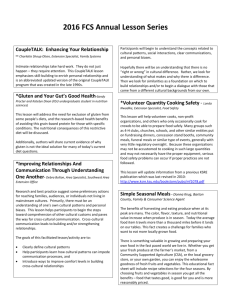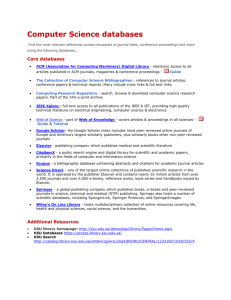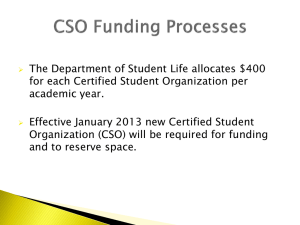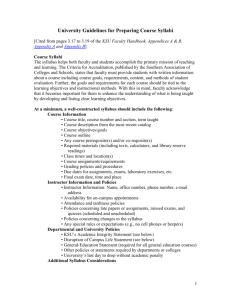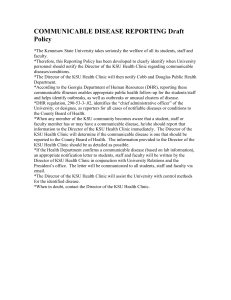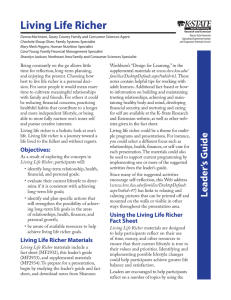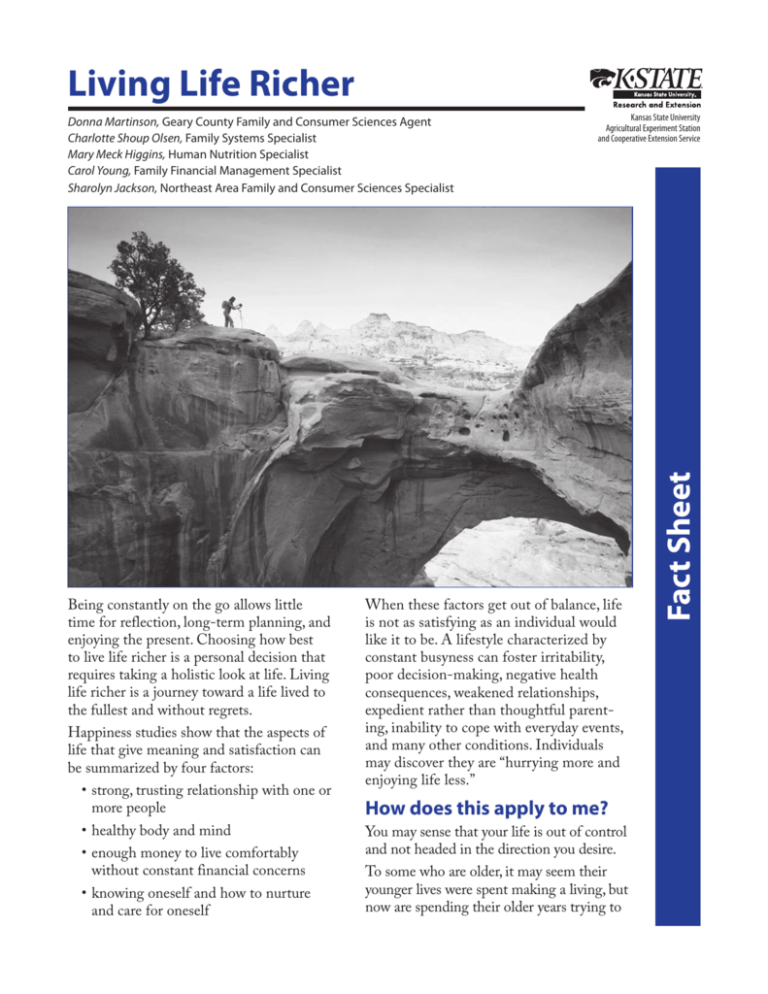
Living Life Richer
Being constantly on the go allows little
time for reflection, long-term planning, and
enjoying the present. Choosing how best
to live life richer is a personal decision that
requires taking a holistic look at life. Living
life richer is a journey toward a life lived to
the fullest and without regrets.
Happiness studies show that the aspects of
life that give meaning and satisfaction can
be summarized by four factors:
•strong, trusting relationship with one or
more people
•healthy body and mind
•enough money to live comfortably
without constant financial concerns
•knowing oneself and how to nurture
and care for oneself
Kansas State University
Agricultural Experiment Station
and Cooperative Extension Service
When these factors get out of balance, life
is not as satisfying as an individual would
like it to be. A lifestyle characterized by
constant busyness can foster irritability,
poor decision-making, negative health
consequences, weakened relationships,
expedient rather than thoughtful parenting, inability to cope with everyday events,
and many other conditions. Individuals
may discover they are “hurrying more and
enjoying life less.”
How does this apply to me?
You may sense that your life is out of control
and not headed in the direction you desire.
To some who are older, it may seem their
younger lives were spent making a living, but
now are spending their older years trying to
Fact Sheet
Donna Martinson, Geary County Family and Consumer Sciences Agent
Charlotte Shoup Olsen, Family Systems Specialist
Mary Meck Higgins, Human Nutrition Specialist
Carol Young, Family Financial Management Specialist
Sharolyn Jackson, Northeast Area Family and Consumer Sciences Specialist
regain their health. Are your current eating,
physical activity, and other health-related
habits likely to contribute to a long, healthy
life? Are there changes you could make that
would allow you to make a living, yet protect
your health? What benefits would you expect
to have from good physical health and financial security, now and long into the future?
New Year’s resolutions often include eating
better, being wiser about using money, exercising more, and paying more attention to
important relationships. By the end of January, the resolve to achieve those goals often
wanes. What kind of event might occur that
would increase your motivation to stick to
your resolutions? Would it take a serious illness or accident, extreme financial distress,
or the disruption of a valued relationship
to trigger change? What resolutions do you
make year after year? What would need to
change to make your resolutions a reality?
Why, and how, could you live life richer by
making some lifestyle changes? The following scenarios and questions can help prompt
your reflections.
Scenarios
Learn to Say No
On the last day of work before retiring, Janice
turned in all of her work-related keys. Not only
was her keychain lighter, so was her sense of
responsibility.
Short of retirement, what current activities
and responsibilities could you eliminate or
reduce to lighten your load? Which activities are most satisfying and which ones give
less satisfaction? Why do you often say “yes”
when you want to say “no”?
2
Stop Making Excuses
Wendy was the “Queen of Excuses.” One weekend as she was watching TV, she heard an author
promote his latest book on making life changes
by eliminating excuses. Wendy didn’t order his
book, but she did make a list of why healthy
relationships, good health, financial security, and
personal growth were important to her. Her list
included such statements as: “I want to live to see
The person who has lived the most
is not the one who has lived the
longest, but the one with the richest
experiences.
~ Jean-Jacques Rousseau
my grandchildren grow to adulthood,” “I want
to be physically able to care for myself,” “I want
to have a financial cushion instead of debt,” and
“I want to graduate from college.”
What excuses do you use that get in the
way of accomplishing your “wants”? Why
are healthy relationships, financial security,
good health, and caring for self important
to you?
Develop Supportive Relationships
Erma Bombeck, author and humorist, said
“People shop for a bathing suit with more care
than they do a husband or wife. The rules are
the same. Look for something you’ll feel comfortable wearing. Allow for room to grow.”
Do your friends and family support your
attempts to improve yourself or pursue your
goals? Are you encouraged by those around
you to be your best self ? Do you have “toxic”
friends – the kind that spread negativity and
dampen rather than lift your spirits? Are
you the kind of friend you want to have?
Set Goals
Characters in the movie, “The Bucket List,”
intentionally did what they wanted to accomplish before they died.
Have you made a “bucket list”? If not, write
down at least three to five lifetime goals.
(Achieving goals is more likely if you write
them down.) What is on your list? What
could you do right now to achieve the items
on your list?
Find Work Satisfaction
Few of his co-workers liked to see Joe come to
work. Joe hated his job and wasn’t shy about
letting everyone around him know how much
he hated it. Joe often said he’d quit the job if he
didn’t need the money.
Do you work at your job just because you
need the money? Does what you are currently doing match what you want to do?
What could you do to acquire or create
a more desirable job? More education?
Willingness to accept less pay? Obtain the
finances to launch a new business?
Clarify Your Values
Sharon had a case of conflicting values,*
although she hadn’t thought of her situation
like that. Sharon valued orderliness and being
on time. She detested messiness and tardiness.
Unfortunately her children didn’t always operate on her schedule. Sharon often had to leave
her home untidy, so she could get the kids to
school and herself to work on time.
Do you have values that conflict? How do
you resolve the internal conflict that occurs
when both cannot be fully accommodated?
Could you alter your expectations? Which
values are so important they need strengthening, even at the expense of other values?
* Clarifying your values is key to making
meaningful change. Values guide your actions
even though those values may be unrecognized, unacknowledged, and perhaps unquestioned. You may be unaware of certain values
until those values conflict.
Build and Maintain Strong,
Trusting Relationships
Human beings are social creatures with an
innate need to connect with others. The
quality of those connections ranks first in
rating scales on happiness. Keys to building
and maintaining strong, trusting relationships and other family strengthening information can be found at www.ksre.ksu.edu/
families/. Parenting materials can be found
at www.k-state.edu/wwparent/wondhome.
htm.
Healthy Body and Mind
Lifestyle factors play a pivotal role in promoting a person’s health and decreasing
risk of chronic disease. Physical activity,
eating healthfully, not smoking, and getting
enough sleep are a few such factors that
contribute to good health. Information on
lowering a person’s risk of disease and maintaining optimal health is available at www.
ksre.ksu.edu/humannutrition/.
Financial Security
In measures of happiness, after a certain
amount of wealth is achieved, having more
money does not increase one’s happiness.
However, having adequate funds to meet
life’s basic needs and some of life’s wants
is important to a sense of security and life
satisfaction. A variety of ways to ensure
financial security can be found at www.ksre.
ksu.edu/financialmanagement/.
Nurture and Care for Self
Self-actualization is the ongoing pursuit of
one’s interests, creativity, and the creation
of one’s best self. In order for a person to be
able to form healthy relationships, engage
in healthful behavior, and keep finances in
check, the person must first be knowledgeable and comfortable with himself or herself. Information on nurturing and caring
for self is available at:
http://hillsboroughfcs.ifas.ufl.edu/Family
PubsA-Z/Balancing/BasicsOfBalancing
Handout.pdf.
References & Resources:
Small Steps to Health and Wealth, by Barbara O’Neil
and Karen Ensle. Has monthly finance and health
messages.
Public site: http://njaes.rutgers.edu/sshw/
3
Educator site:
http://njaes.rutgers.edu/sshw/internal/
Health Finance page:
http://njaes.rutgers.edu/healthfinance/
Financial Fitness Quiz and Calendar
http://njaes.rutgers.edu/money/default.asp#resources
Stages of Change Behavior and
Locus of Control Theory
Intentional Harmony, University of Illinois Extension, web.extension.uiuc.edu (available through some
county and district extension offices and from
K-State specialists Debra Sellers, dsellers@ksu.edu,
and Sharolyn Flaming Jackson, sharolyn@ksu.edu )
Slow Food Movement: www.slowfoodusa.org
Slowness Movement: www.slowmovement.com
References for Happiness Research:
Public Television Series, “Tal Ben-Shahar
– Positive Psychology: The Science of
Happiness,” http://forum-network.org/lecture/
positive-psychology-science-happiness/
“Bhutan: Taking the Middle Path to Happiness,”
www.bhutan-film.com/
References and Additional Resources
for Minimal Limitations Due to Health
Consumer resources concerning nutrition, physical
fitness, and disease prevention
www.healthfinder.gov
U.S. Centers for Disease Control and Prevention
www.cdc.gov
Current information from nutrition experts
www.nutrition.gov
Physical activity and sports information
www.fitness.gov
SWITCH: How To Change Things When Change is
Hard by Chip Heath and Dan Heath, Broadway
Books, 2010; ISBN 978-0-385-52875-7
References for Building Family Strengths
MF2251 Managing Time, Work and Family:
Communication Fact Sheet
MF2250 Managing Time, Work and Family:
Decision-Making Fact Sheet
MF2255 Managing Time, Work and Family:
Delegating Fact Sheet
MF2249 Managing Time, Work and Family:
Goal-Setting Fact Sheet
MF2254 Managing Time, Work and Family:
Organizing the Household, Fact Sheet
MF2253 Managing Time, Work and Family:
Stress Management Fact Sheet
MF2252 Managing Time, Work and Family:
Time Management Fact Sheet
Authors
Donna R. Martinson, Geary County Family and
Consumer Sciences Agent, retired; dmartins@ksu.edu
Charlotte Shoup Olsen, Family Systems Specialist,
Family Studies and Human Services, colsen@ksu.edu
Mary Meck Higgins, Human Nutrition Specialist,
mhiggins@ksu.edu
Carol Young, Family Financial Management
Specialist, cyoung@ksu.edu
Sharolyn Jackson, Northeast Area Family and
Consumer Sciences Specialist, sharolyn@ksu.edu
Consultant: Elaine Johannes, Youth Development
Specialist, ejohanne@ksu.edu
Reviewers
Susie Latta, Marshall County Family and Consumer
Sciences Agent
Tara Solomon, Neosho County Family and
Consumer Sciences Agent
Brand names appearing in this publication are for product identification purposes only. No endorsement is intended, nor is criticism implied of similar products not mentioned.
Publications from Kansas State University are available on the World Wide Web at: www.ksre.ksu.edu
Publications are reviewed or revised annually by appropriate faculty to reflect current research and practice. Date shown is that of publication or last revision.
Contents of this publication may be freely reproduced for educational purposes. All other rights reserved.
In each case, credit Donna Martinson, et al., Living Life Richer, Fact Sheet, Kansas State University, August 2010.
4
Kansas State University Agricultural Experiment Station and Cooperative Extension Service
MF2932 August 2010
K-State Research and Extension is an equal opportunity provider and employer. Issued in furtherance of Cooperative Extension Work, Acts of May 8 and June 30, 1914, as amended.
Kansas State University, County Extension Councils, Extension Districts, and United States Department of Agriculture Cooperating, Gary Pierzynski, Interim Director.

